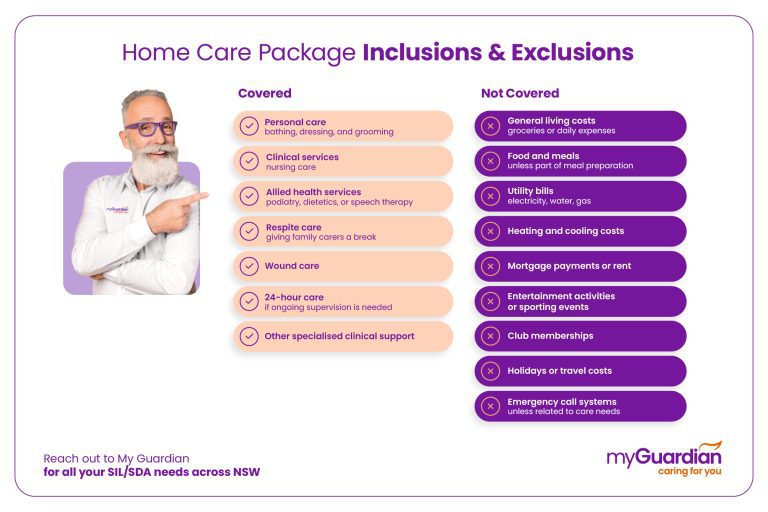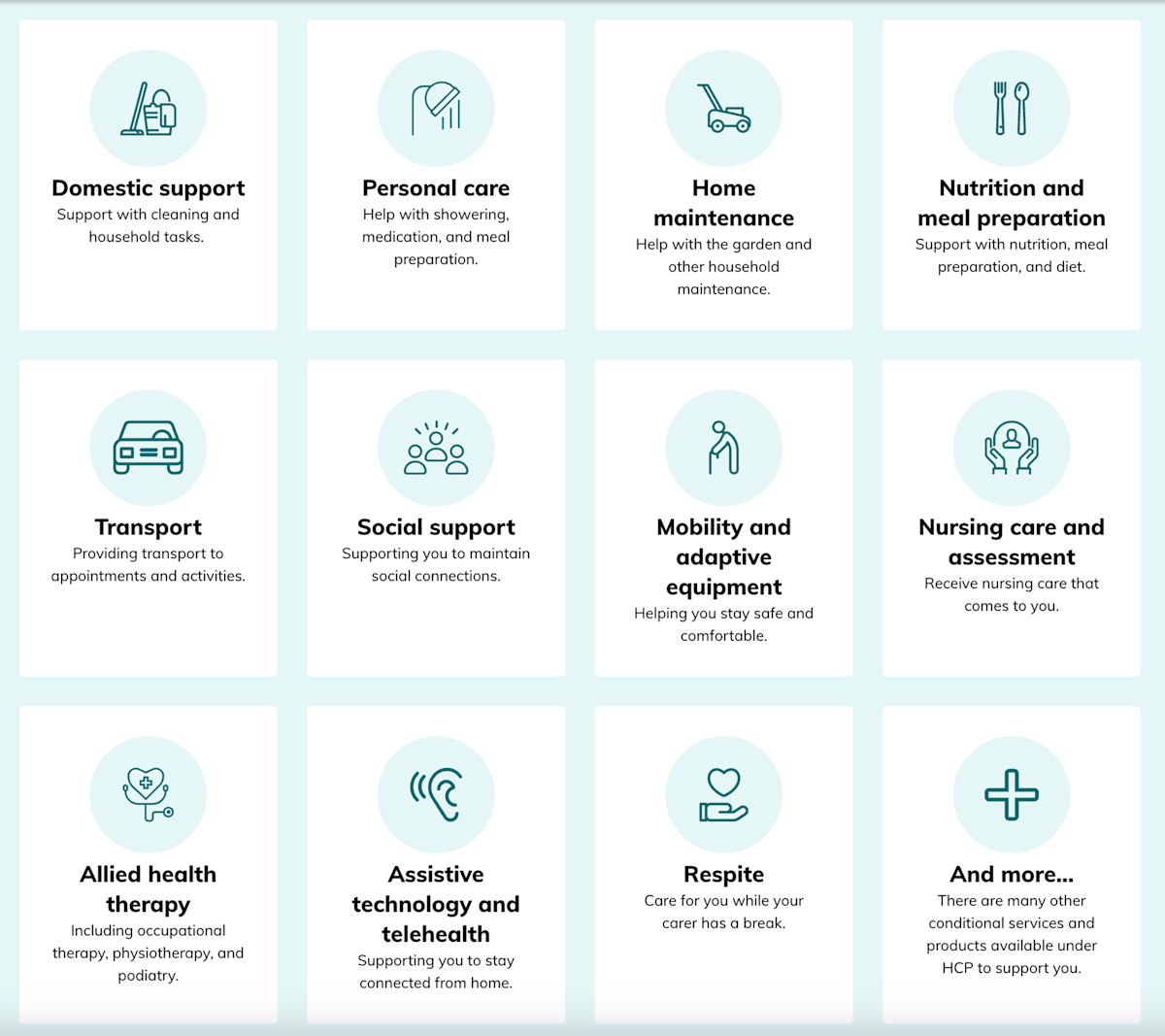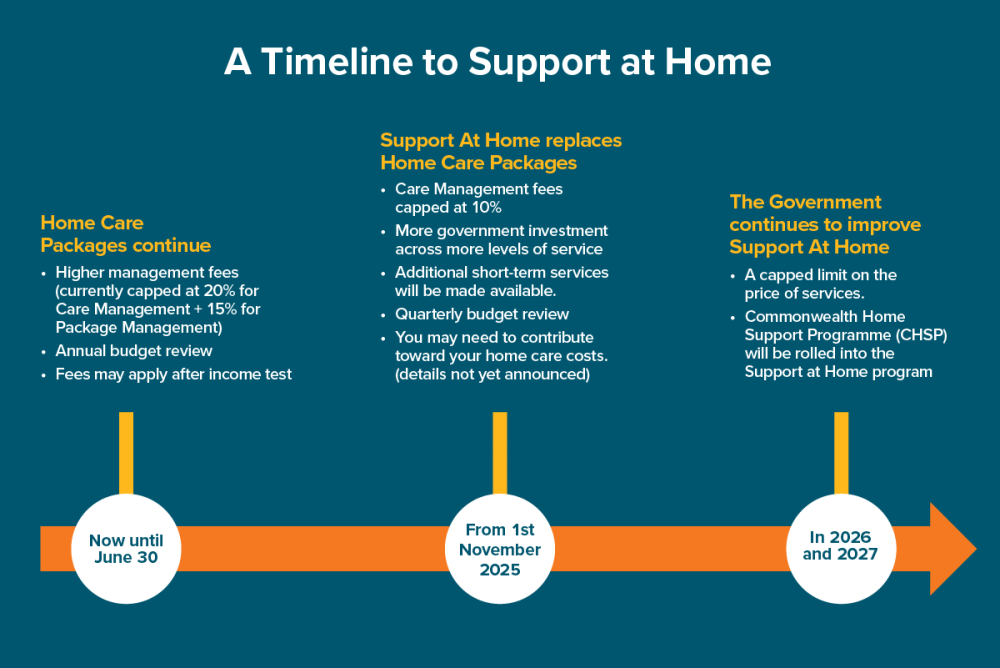How home care package providers tailor care to individual disability goals
How home care package providers tailor care to individual disability goals
Blog Article
Everything About Home Treatment Solutions for People With Disabilities: NDIS Registered Support
Home treatment solutions under the NDIS play a critical duty in supporting individuals with specials needs. These services are designed to improve day-to-day living via customized support, ranging from individual care to movement support. Comprehending how to navigate these alternatives can be complex. This overview checks out the various elements of NDIS home treatment, from available solutions to the option of companies, highlighting vital factors to consider for those seeking support. The trip toward encouraged treatment begins here.
Understanding the NDIS and Its Function
The National Special Needs Insurance Scheme (NDIS) acts as a transformative framework designed to give assistance and solutions for individuals with specials needs. Developed to boost the quality of life and warranty equitable access to essential resources, the NDIS encourages individuals by using personalized plans tailored to their unique demands. It intends to foster independence, allowing individuals to seek their individual goals and aspirations.Through a structured approach, the NDIS allocates funding for different supports, including education and learning, work support, and community participation. This comprehensive plan not only focuses on immediate care however likewise emphasizes lasting developmental outcomes. By promoting option and control, the NDIS urges individuals to choose their favored provider, guaranteeing that treatment aligns with their values and preferences. Ultimately, the NDIS stands for a substantial commitment to enhancing the lives of individuals with specials needs, fostering inclusivity, and building an extra helpful culture.
Sorts Of Home Care Solutions Available
Different kinds of home care solutions deal with individuals with impairments, primarily concentrating on individual treatment aid and break care alternatives. Individual treatment help supplies necessary support with day-to-day activities, while respite treatment provides temporary alleviation for primary caregivers. Recognizing these services is essential for ensuring the well-being of both individuals with specials needs and their households.
Personal Care Support
While navigating day-to-day live can offer difficulties for individuals with disabilities, individual treatment assistance offers vital assistance tailored to their one-of-a-kind needs. This kind of home treatment service incorporates a variety of tasks designed to promote freedom and enhance lifestyle. Individual care aides assist with day-to-day tasks such as bathing, dressing, brushing, and toileting, ensuring people keep individual hygiene and convenience. They may additionally assist with dish prep work, medicine administration, and flexibility assistance. By providing customized treatment, these professionals encourage individuals to engage even more completely in their social tasks and everyday routines. In general, personal treatment aid plays a significant duty in cultivating self-respect and freedom for those with specials needs, enabling them to prosper in their home setting.

Respite Care Options
Break care works as an important resource for households and caretakers of individuals with disabilities, providing temporary remedy for the demands of day-to-day caregiving. This type of service can take various forms, consisting of at home respite care, where skilled experts go to the home to help with treatment jobs. Alternatively, family members might select facility-based respite care, where people receive care in a specific atmosphere, enabling caregivers to relax. Additionally, some organizations provide emergency situation reprieve services for unexpected circumstances. These choices not just help ease caregiver tension but additionally promote the health of individuals with handicaps by supplying them new experiences and social interaction. On the whole, respite treatment plays an essential duty in supporting both caretakers and those they take care of.

Just How to Access NDIS Home Treatment Services
Accessing NDIS home care solutions involves comprehending the eligibility criteria established forth by the National Impairment Insurance Policy Plan. Individuals must navigate an organized application procedure to protect the needed support customized to their requirements. This area will clarify both the eligibility requirements and the actions involved in applying for solutions.
Eligibility Requirements Explained
To get approved for NDIS home care services, individuals need to fulfill details eligibility criteria that assess their situations and demands. Initially, candidates need to be matured between 7 and 65 years and have a irreversible and considerable special needs that impacts their capability to execute day-to-day tasks. Additionally, they must be an Australian resident, an irreversible citizen, or hold a Protected Special Classification Visa. The NDIS requires proof of the disability, normally via medical assessments or records. Individuals need to demonstrate that they call for support to participate in social and economic life. These standards guarantee that services are guided towards those that truly require help, promoting independence and boosted high quality of life for individuals with handicaps.
Application Refine Steps
Can I Pick My Very Own Support Workers With NDIS?
The individual asked whether they might pick their own assistance employees under the NDIS structure. Generally, individuals have the flexibility to select support employees, cultivating customized treatment that lines up with their details requirements and choices.
What Happens if My Needs Modification After Getting Assistance?
If an individual's demands modification after getting support, they ought to communicate these modifications to their provider. Modifications can be made to the treatment strategy, ensuring that the assistance stays Going Here effective and relevant for their circumstances.

Are There Limits on Just How Numerous Hours of Treatment I Can Obtain?
The specific asked about prospective limitations on the number of care hours obtained. Usually, such special info restrictions might exist based on specific plans or moneying plans, stressing the significance of evaluating contracts and guidelines routinely.
Can I Utilize NDIS Funding for Home Alterations?
The inquiry of making use of financing for home alterations develops regularly. Typically, individuals may use NDIS financing for necessary alterations to their homes, making sure availability and security, set upon conference specific qualification standards and guidelines.
Exactly how Do I Handle Problems Concerning My Home Care Solutions?
To address issues regarding home care services, people should initially record their concerns. After that, they can communicate straight with their provider, seeking resolution, or escalate the concern to relevant oversight bodies if necessary. Home treatment solutions under the NDIS play a critical function in supporting individuals with specials needs. Various types of home treatment services provide to people with impairments, primarily focusing on personal treatment help and break treatment alternatives. support at home provider. Individual care help provides essential support with day-to-day tasks, while reprieve treatment provides short-term alleviation for main caretakers. Families might choose for facility-based respite treatment, where individuals receive treatment in a customized environment, permitting caretakers to take a break. Just how can families effectively manage the monetary elements of home treatment services for people with impairments?
Report this page